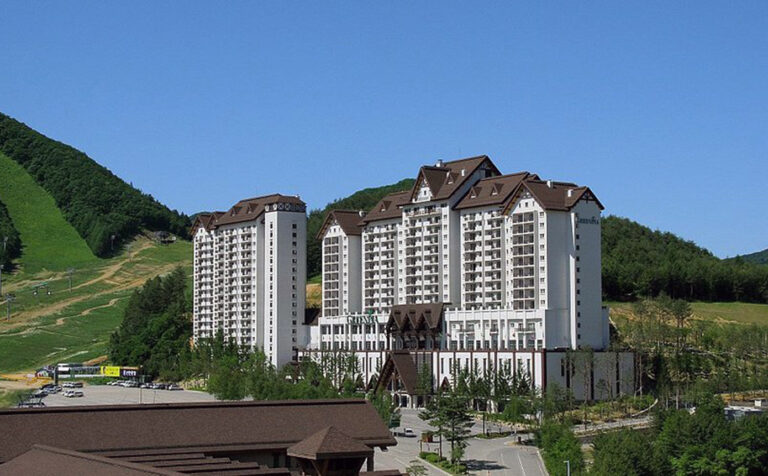The main difference between resort condos and other lodging facilities lies in their ownership and operational structure, which can be broadly classified into two types:
- Shared Ownership: Consumers pay the purchase price and acquire a share of the ownership of each unit, securing ownership. The purchaser retains usage rights until they transfer their share.
- Membership: The provider retains ownership of the facility, and consumers pay a deposit and become members to secure usage rights for a designated period. Upon expiration, members can either receive their deposit back or renew their contract.
The standards for resort condo facilities are stipulated in Annex 1 of the Enforcement Decree of Tourism Promotion Act as follows:
- Guestroom
- There must be at least 30 rooms within the same complex. However, for registration applications made between July 1, 2016, and June 30, 2018, there must be at least 20 rooms.
- The facility must be equipped with the necessary amenities for tourists to cook, stay, and sleep. However, if there are communal cooking facilities such as a shared kitchen outside the rooms, the requirement for cooking facilities is exempt up to 30% of the total rooms (in urban areas under Article 6, Item 1 of the National Land Planning and Utilization Act, this percentage may be determined by ordinance within the limit of 30% of the total rooms).
- Store, etc.
- There must be a store or a small shop. If the complex consists of multiple buildings, a communal installation is acceptable.
- Cultural and Sports Facilities
- There must be at least one cultural or sports space suitable for tourists, such as a theater, exhibition hall, art gallery, museum, swimming pool, tennis court, soccer field, basketball court, etc. If the complex consists of multiple buildings, a communal installation is acceptable. However, resort condos within a tourist district, tourist complex, or general resort complex are not required to install these spaces.
- Must secure ownership or usage rights of the land and building. However, for unit sales or membership recruitment, ownership must be secured.
Resort condos are a type of lodging property similar to family hotels under the Tourism Promotion Act and residential lodgings under the Public Health Control Act, as they are required to have cooking facilities under Annex 1 of the Enforcement Decree of Building Act. As such, family hotels, resort condos, and residential lodgings may be in direct competition.
The differences are that resort condos can be sold fractional pursuant to Article 24 of the Enforcement Decree of the Tourism Promotion Act, while residential lodgings can be sold fractional pursuant to the Act on the Sale of Building Units, but family hotels cannot. Additionally, family hotels and resort condos can recruit members according to Article 24 of the Enforcement Decree of Tourism Promotion Act, while residential lodgings cannot. Therefore, resort condos can combine shared unit sales and membership recruitment for financial structuring, making it easier to secure development and operational funds, but also resulting in higher difficulty in quality management for the same reason.


